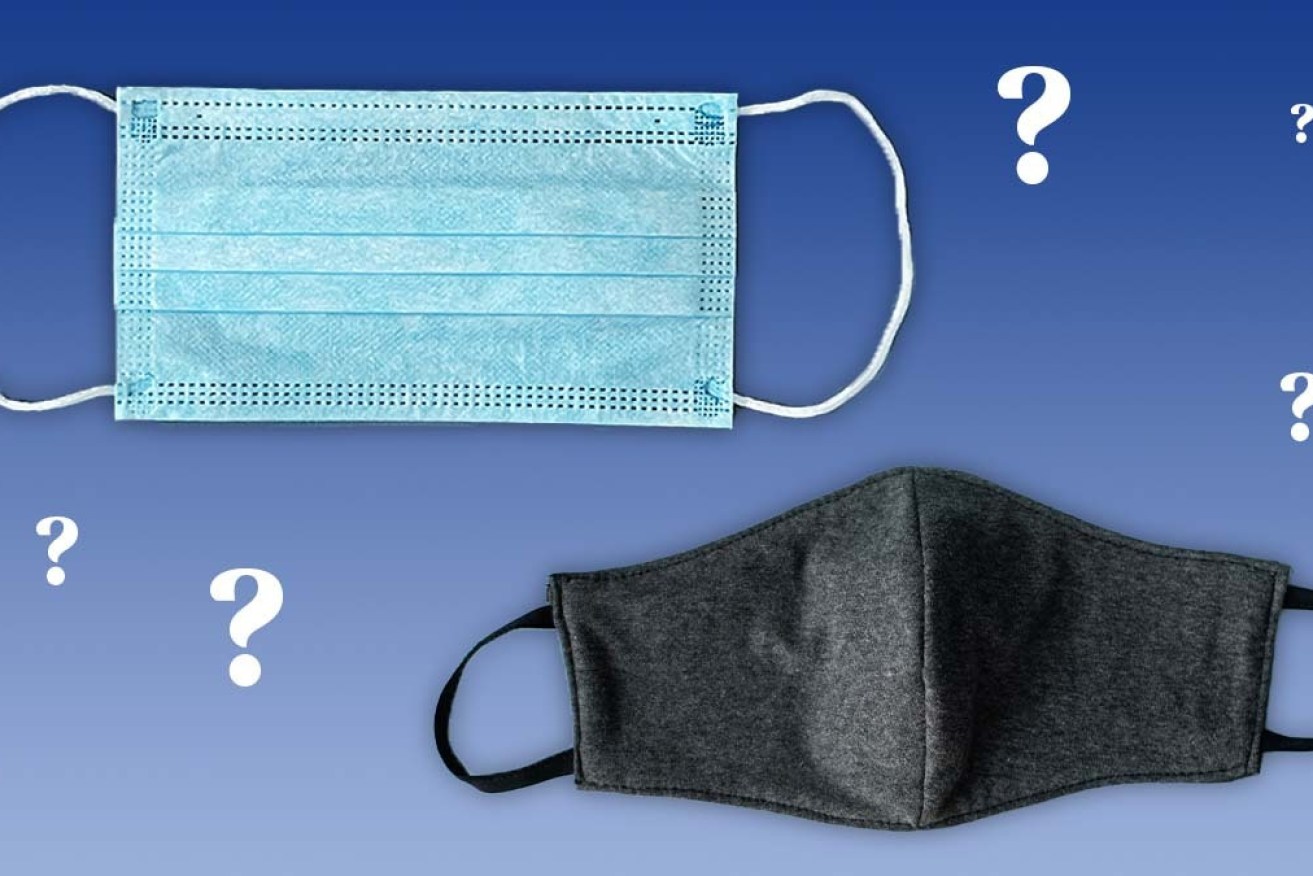Indoor face masks are back. This is what you should wear


Non-woven surgical masks offer better bacteria filtration than woven cloth. Photo: TND
As case numbers in New South Wales and Victoria continue to soar, mandatory face masks indoors have officially returned.
So it’s worth brushing up on our knowledge of staying hygienic and masking up.
Surgical masks v cloth masks
Professor Peter Collignon, infectious diseases physician at the Australian National University’s school of clinical medicine, told The New Daily the best face mask to use (correctly) is a single-use surgical mask.
These non-woven surgical masks offer better bacteria filtration and airflow than woven cloth.
People in the general community can also opt for P2 or N95 respirator masks, but they’re more commonly used in hospital environments.
Professor Collignon explained that surgical masks are designed to keep particles the size of one micron or micrometre (one-millionth of a metre) from getting through the mask.
“Cloth masks aren’t as efficient. They’ll let larger particles through,” Professor Collignon said.
But cloth masks can still provide protection, as long as you wear them properly.
Whether you use a cloth face mask or a surgical one, make sure it covers your nose and mouth and fits snugly under your chin, over the bridge of your nose and against the sides of your face.
Having said that, Professor Collignon warned that if either type of mask becomes damp or soiled during use, you should stop using them as their effectiveness will be greatly reduced.
It’s one of the reasons why there are limits on how long you’re supposed to wear a mask for and how often you should replace them.
Keep it clean
In Professor Collignon’s view, you want to cycle through your masks every few hours if you have to wear one for a full working day.
“That’s one of the advantages of cloth masks. At least if you’ve got a number of them, you can wash and reuse them,” he said.
“A cloth mask is better than no mask.”
The Australian government recommends washing your reusable cloth mask daily with soap and water.
Reusing your mask without washing it, as well as frequent touching and adjusting, can lead to self-contamination and infection of the wearer.
Although Professor Collignon recommends surgical masks over cloth, he recognises this isn’t practical for everybody, given expenses and the build-up of personal waste.
“So if you do have a cloth mask, just make sure it’s efficient,” he said.
“Hold it up to the light and if you can’t see light through it then it’ll probably be efficient.”
A joint effort
To help reduce the spread of the virus, wearing a mask should be combined with good hand hygiene, vaccination, physical distancing, and consistent COVID-19 testing.
Professor Collignon also recommends socialising outdoors rather than indoors.
Although the virus can spread outdoors, transmission is much more common inside where there is less space to physically distance and aerosols can linger in the air.
“Wearing a mask is a good idea to decrease your risk, but a lot of the higher-risk situations are crowded indoor venues like bars, gyms and pubs,” Professor Collignon said.
“Super-spreading events are often where people won’t be wearing masks, so you’ve got to take that into account.”
Professor Collignon added that it’s important to remember Australia is highly vaccinated now, which means high levels of protection – 90 per cent effectiveness – against hospitalisation and death.








